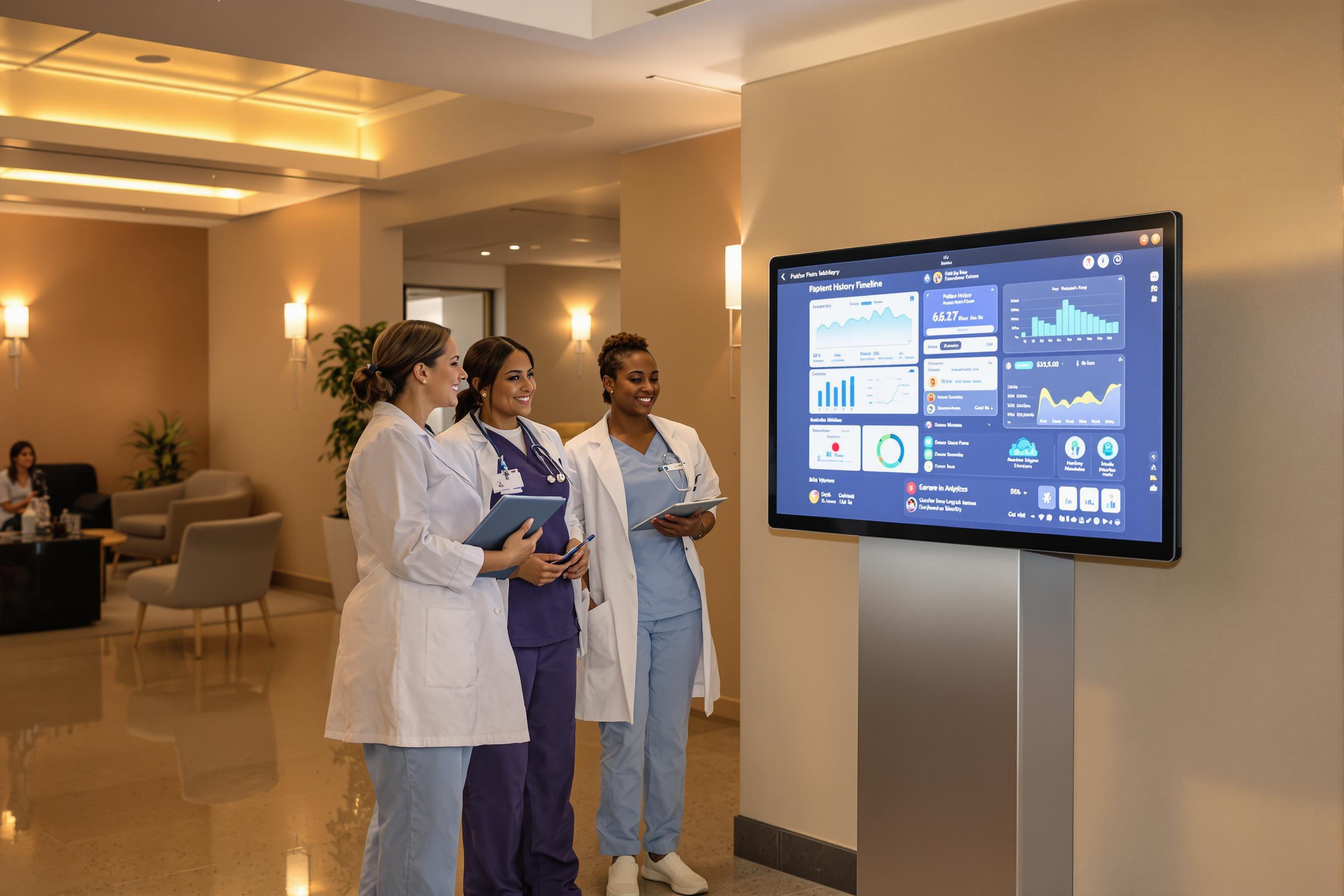
As SUD rates soar and only 6.5% receive care, addiction treatment EHRs like LightningStep are closing the treatment gap with AI-driven workflows and unified patient records. In the U.S. alone, 48.5 million people aged 12 or older experienced an SUD in the past year, while 59.277 million or 21.4% of people 12 and over have used illegal drugs or misused prescription drugs within the last year. Globally, only 1 in 11 people with drug use disorders receive needed treatment, underscoring a massive care gap.
The global substance abuse treatment market is projected to reach USD 36.83 billion by 2034, underscoring the urgent need for specialized addiction treatment EHRs.
An addiction treatment EHR is specialized software designed specifically for substance use disorder (SUD) and medication-assisted treatment (MAT) workflows. Unlike generic medical EHRs, a behavioral health EHR offers specialized functionality – support for longer psychotherapy notes, the ability to document group therapy sessions (linking one note to multiple client records), and tools for tracking client outcomes over time through specialized dashboards.
Built-in DSM-5 and ASAM screening tools ensure every intake captures key clinical data without custom coding. The system should allow you to build and modify intake forms without coding knowledge, adapting to your specific treatment protocols and regulatory requirements.
LightningStep's mental health EMR includes drag-and-drop form builders with preconfigured SUD templates that streamline the intake process while maintaining clinical rigor. This reduces administrative burden during the critical first patient encounter.
Individualized care plans form the foundation of effective addiction treatment. The system should enable creation of detailed treatment plans with specific milestones, goals, and intervention strategies. Real-time progress notes and automated alerts for missed appointments or treatment setbacks help maintain continuity of care.
LightningStep's dynamic treatment plan module provides a centralized patient dashboard where clinicians can track progress across multiple treatment modalities, from individual therapy to group sessions and family counseling.
Telehealth capabilities expand access to care, particularly for MAT programs. Telehealth also overcomes geographical barriers for remote and underserved populations. A 2021 Journal of Substance Abuse Treatment meta-analysis found that telehealth MAT programs had 15% higher medication adherence rates. The platform should include HIPAA-compliant video visits and integrated electronic prescribing of controlled substances (EPCS) functionality.
LightningStep's built-in telehealth platform connects seamlessly with one-click e-prescribing workflows, supporting compliance with DEA regulations while maintaining the therapeutic relationship between appointments.
Addiction treatment programs must demonstrate outcomes through retention rates, relapse tracking, and quality indicators. In 2020, 30% of addiction treatment programs were accredited by CARF, while the Joint Commission accredited 23%. The system should include custom report builders that support these accreditation requirements and state audit compliance. It should support specific CARF and Joint Commission documentation standards.
LightningStep's analytics dashboards provide real-time insights into program performance with automated compliance alerts that help maintain accreditation standards without manual oversight.
Modern addiction treatment requires integration with laboratories, pharmacies, prescription drug monitoring programs (PDMPs), and health information exchanges. Cloud-based architecture supports easy scaling across multiple treatment sites while native mobile applications enable field counselors and peer support specialists to access patient information securely.
LightningStep's API toolkit facilitates seamless integration with existing systems while the mobile clinician app ensures treatment teams stay connected regardless of location.
Specialized EHR systems transform patient engagement through secure messaging and automated appointment reminders. Clinicians experience streamlined workflows that reduce administrative burden, allowing more time for direct patient care. Enhanced data visibility enables proactive care adjustments based on real-time patient status.
LightningStep combines CRM, EMR, and RCM capabilities into a single, unified system designed specifically for behavioral health organizations.
LightningStep addresses each essential feature through AI-powered documentation assistance that saves clinicians over 12.5 hours monthly, integrated telehealth capabilities, and comprehensive compliance tools. The company has achieved ISO 42001 certification and was named a 2025 CIO 100 Award Winner, demonstrating their commitment to innovation in behavioral healthcare technology.
Successful EHR implementation requires early stakeholder engagement across clinical, billing, IT, and compliance teams. Define clear workflows and map them to system configuration before launch. Plan a phased rollout with comprehensive staff training to minimize disruption to patient care. Keep in mind that 68% of hospital-based SUD programs use only basic EHR functionality, so build training on advanced features from day one.
Establish a data migration strategy that preserves historical patient records while integrating with legacy systems. Leverage vendor support throughout the implementation process and establish continuous optimization cycles to maximize system value over time. Ensure ongoing HIPAA-compliance training and regular system-use audits to maintain data privacy and security.
Ready to modernize your addiction treatment workflows? Book a free demo of LightningStep's all-in-one, AI-driven EHR today.



